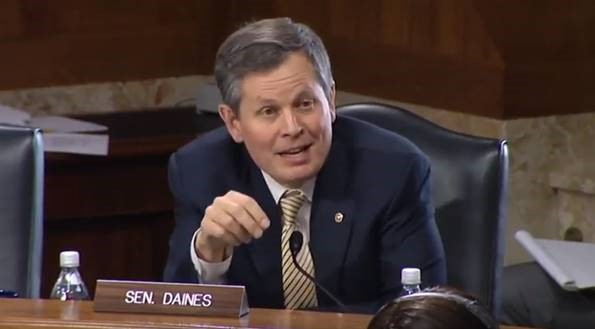U.S. SENATE —U.S. Senator Steve Daines today at a Senate Energy and Natural Resources Committee hearing outlined his energy infrastructure priorities and called for action on forest management to decrease the risk of wildfires in Montana and reduce bureaucratic hurdles that challenge the security of power lines.

Watch video HERE.
Download video HERE.
Opening remarks as prepared:
Infrastructure doesn’t simply mean roads and bridges, but includes broadband, our national parks, and, important for today and really important to Montana, energy infrastructure. I just returned from visiting nine counties in eastern Montana—where we have some pipeline projects in the works—the Keystone XL pipeline, a natural gas liquids pipeline, and a CO2 pipeline near Baker. We have come a long way on pipeline safety, and I am happy to have authored the SAFE PIPES Act which was signed into law in 2016, making the transportation of oil and natural gas even safer.
All are critical to moving energy that will fuel our nation and the world. As the state with the largest deposit of recoverable coal, too, we also are looking for approval of coal export terminals so we can begin moving our coal through domestic ports—creating American jobs—rather than going through ports in Canada.
Security and reliability of our electric grid is also top of mind—especially when we work to protect reliable baseload power that comes from the Colstrip power plant—and especially each summer, as wildfires rage across federal lands that tend to be more difficult to manage, posing risks to utility lines.
In Montana, we also house minerals that are the building blocks of a lot of our infrastructure—whether it’s sand or gravel or world class copper deposits, palladium, and silver. We need to be sure we can access those materials domestically and not have to rely on nations overseas.
I hope bills emerge from this Committee and others that strengthen all of our energy assets—from more expeditious approval of pipelines, export terminals to protecting baseload power, helping federal land managers be better partners with power companies in vegetation management and allowing us to recover our own raw materials.
###
